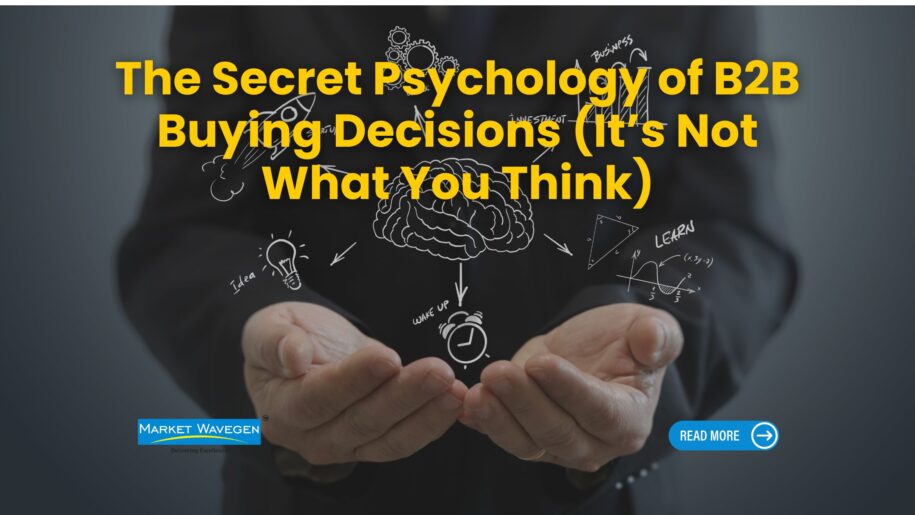“We’re a data-driven company. We only buy based on ROI.”
That’s what most B2B decision-makers will tell you.
But dig deeper, and you’ll find that the real story isn’t just logic—it’s human behavior.
Despite the spreadsheets, procurement policies, and long sales cycles, B2B buyers are still… people. And people are emotional, social, and wired for psychological shortcuts.
Here’s the surprising psychology driving B2B buying—and how you can use it to build trust, shorten sales cycles, and win more deals.
1. Risk Aversion > ROI
Psych Insight: Behavioral economics shows that people fear losses more than they desire gains (Loss Aversion – Kahneman & Tversky). In B2B, this is amplified by career risk.
“No one ever got fired for buying IBM.”
That quote isn’t about product superiority—it’s about safe choices.
Buyers often choose the familiar, the proven, or the brand with perceived stability—not the cheapest or most innovative.
✅ Your Move: Build trust through social proof, case studies, and brand authority. Reduce perceived risk, not just price.
2. Consensus Bias Rules the Room
Psych Insight: The average B2B purchase involves 6 to 10 decision-makers (Gartner). That means you’re not just selling to one person—you’re navigating group dynamics.
Enter: Consensus Bias—we conform to group opinions to avoid conflict or social rejection.
When even one stakeholder hesitates, it can stall or kill the deal.
✅ Your Move: Create content that speaks to each stakeholder (finance, ops, IT, end user). Equip your champion with internal decks and ROI tools to sell on your behalf.
3. Emotions Still Drive Action
Psych Insight: Antonio Damasio’s research shows that people with damaged emotional processing struggle to make decisions—even with full rational data.
B2B isn’t emotionless. It’s emotions wrapped in rational justifications.
Fear of failure. Pride in innovation. Anxiety about change. Excitement about transformation. These are all at play during every pitch or proposal.
✅ Your Move: Use storytelling. Show before-after scenarios. Tap into emotional motivators—like ambition, credibility, or fear of missing out.
4. Simplicity Sells in Complex Environments
Psych Insight: The Cognitive Load Theory explains that the more mental effort something requires, the less likely we are to engage with it.
In B2B, where complexity is default, simplicity is power.
✅ Your Move: Strip the jargon. Make decision paths clearer. Use simple frameworks, visuals, and analogies that make your solution feel easy—even if it’s technically advanced.
5. The Power of Reciprocity
Psych Insight: Humans are wired to return favors (Cialdini’s Principle of Reciprocity). Give value first, and trust follows.
Free tools, ungated resources, expert calls—these aren’t just lead magnets. They’re behavioral triggers that create goodwill and signal generosity.
✅ Your Move: Invest in relationship equity before asking for the sale. Serve before you sell.
Final TakeawayB2B buying isn’t just about business. It’s about behavior.
Yes, logic and ROI matter—but behind every buying committee is a group of humans making decisions based on fear, trust, social proof, and emotion.
If you want to win in today’s B2B landscape, learn to sell not just to the mind, but to the brain.
Because once you understand the psychology of buying—you don’t just close more deals.
You create buyers who believe.


Leave a Reply